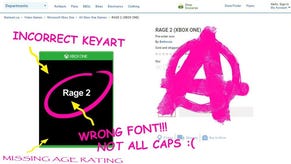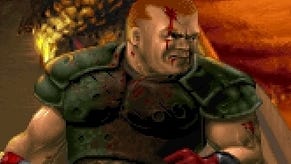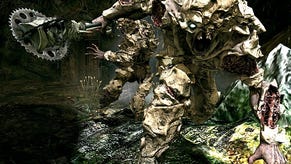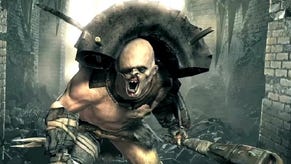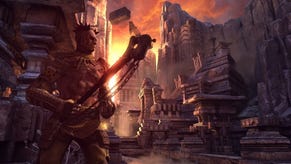Rage: The Return of id Software
Catching up with Tim Willits at the Eurogamer Expo.
That's key.
Well it's not necessarily a tool that's important, it's the mentality. The basics of the engine John always gets up and running very quickly. So we're able to prototype right from the get-go. We can block out levels very quickly and work with the programmers and the gameplay guys to iterate on everything from the vehicle physics to the crouch system.
For instance, we had three entire cover/crouch systems in Rage. One was a state-based system, one was an interactive-based system like Gears of War. Another was an automatic system that just brought you into cover... and it really slowed the gameplay down, so we removed them all. The wingstick, we had a number of iterations on that until we got it right, vehicle physics the same thing. So for us it's more of a mentality than a prototype tool.
Yep, and that never worked out well for us to be honest. Right from the get-go, John and his group of programmers - I call them the Big Brain Group - they looked at the three systems. There are more similarities between them than most people realise, so they developed a codebase that would take care of these multi-core systems.
It makes a lot more sense than taking on old technology and shoving it into a modern day console and then having to multi-thread. So the basic gamecode is the same, the basic engine is the same and it's only the graphical APIs, and a few sound things that are really different on all the three systems, which is really nice. If we have an optimisation on the 360 for instance, it automatically optimises it also for PS3 and PC. Because we started on the engine from scratch it allowed us to more easily develop cross-platform technology.
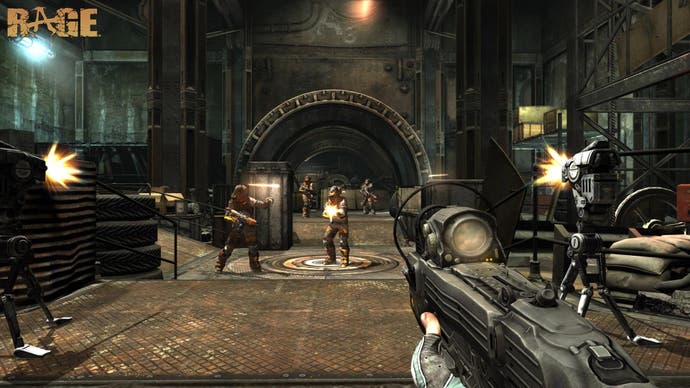
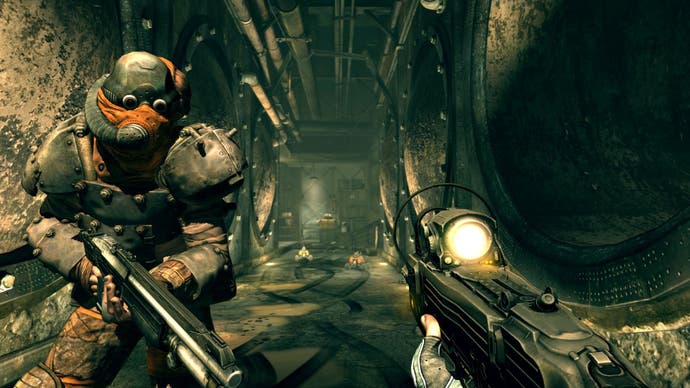
If we discover that something's running slow on the 360, it's probably running slow on the PS3 and PC as well. Some platforms allow us to catch things, because they don't really handle things the same way.
Exactly.
Yeah, that's absolutely correct. Any time you multi-thread an engine and you do it correctly... well, sometimes if you haven't done it correctly it can be slower, one thread waiting for another to finish... you just get improvements across the board. The video drivers are the things that are most of our bottleneck to be honest on the PC.
It's a long time... developing a new technology. And it's hard making games! Make no mistake.
One of the great things about id and John Carmack is that we've been doing this for so long that we get exactly what we need to get done. And John has a great ability to see into the future and yes, you can get yourself into a serious trap if you pay attention to other people. Nobody else was doing any of the kind of stuff we were doing back in the early days, with Quake 3, Quake 2... changing textures and how the world was made for Doom 3. No-one else was doing these kinds of things. We were comfortable in picking a direction, putting our feet down and moving towards that. We don't have to spend a lot of time looking at other people. We have John.
Well, XP-driven multiplayer we have with the vehicle component we have in Rage, but honestly? Some of the trends aren't good trends. Like the whole "pick up a weapon, drop a weapon"... whoever thought of that? That's horrible. Just because it's a trend, it doesn't mean it's a good trend. In a game, when I find a weapon I want to keep it. So again we've always done our own thing there.
That's definitely one of those trends, I didn't want to jump on that bandwagon. Things like XP-based multiplayer is a great trend. We definitely added that in. But we don't pay that much attention to other games.
Because nobody knows what that means. If you grabbed ten people off the street, they would not be able to tell you. When you play it, you just get the way it feels. You may not be able to articulate how it feels, but it feels right. So getting people hands-on with the game has been important. That's why we try to go to all the shows, that's why we get the journalists to play. I say: play Rage for an hour and you'll love it. It's that feel. You're right - it's hard to tell someone that, but it's easy to show them.

